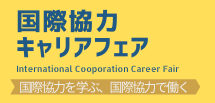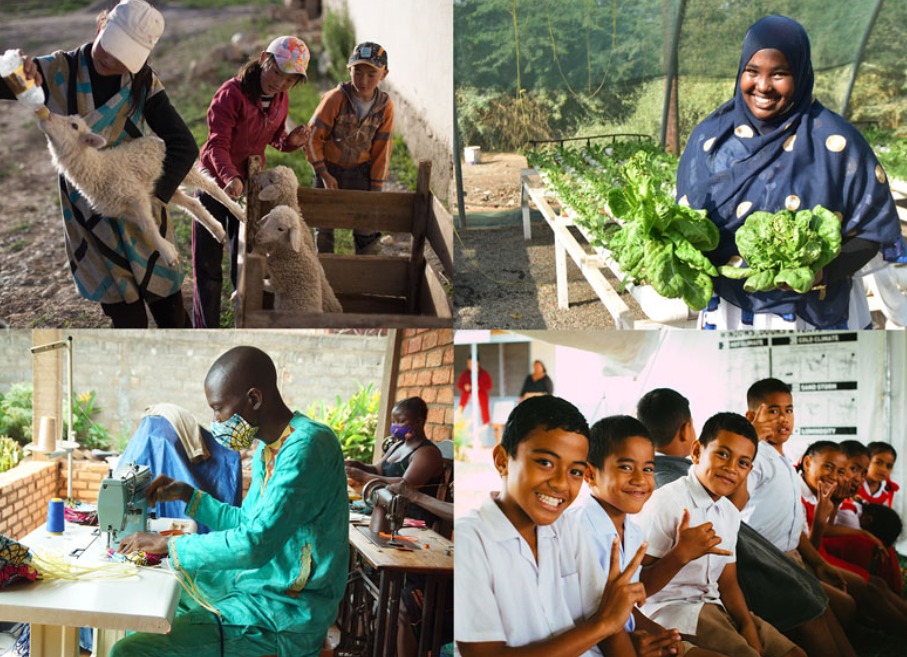IDJ-ENGLISH Strategies Necessary for Growth in Africa over the next 20 Years
Strategies Necessary for Growth in Africa over the next 20 Years
-The COVID-19 Crisis increases the benefits of partnering with local companies
Kohei Muto, CEO/Co-Founder
Double Feather Partners Co., Ltd.
In Africa, the last growth frontier, Japanese companies are expanding their businesses. However, barriers to advancement are still high. What kind of strategies should Japanese companies adopt in the region into the future? We ask Kohei Muto, CEO of Double Feather Partners Co., Ltd., who has a rich track record in supporting business in Africa, and who also participates in the public-private African Business Council. (Interviewed by Saki Kawata)
Professional groups from financial institutions
We have many graduates from financial institutions, and we provide comprehensive support, such as research, financial and management strategic advice to local companies in Africa and Japanese companies aiming to expand into Africa. We also invest in startups with our own funds, and we support the growth of companies from a medium- to long-term perspective while taking risks by ourselves. We are also preparing to launch a venture fund to further expand investments in startups.
Rapid growth due to population growth and deregulation
At a time when uncertainty is increasing due to the COVID-19 crisis, the situation is not easy for investment or expansion in Africa. Transportation costs are rising as supply chains are damaged. Business costs are higher in manufacturing and other industries than ever before. However, as the population declines in each country, only the African continent will grow in the world. It is said that one in four of the world's population will be African by 2050.
In Africa, where laws and regulations are loose, it is easy to conduct demonstration experiments for social implementation of state-of-the-art technologies and businesses that are strictly regulated in developed countries. Especially in the field of telemedicine, deregulation is progressing as the shortage of medical personnel becomes more serious. In urban development, Africa, where infrastructure is not well maintained, has the potential to create new AI cities from scratch. Not only IT companies, but also developers and manufacturers can challenge businesses using new ideas that cannot be found in Japan.
When expanding business overseas, it is important not only to look at Asia, Europe and the United States, but also to take into account such growth in Africa in five or 20 years' time . It is also necessary to develop a strategy for what kind of business portfolio should be formed now in a way that will increase the business value of the company.
Rapidly growing local startups
There are three main ways to enter Africa. The first is to enter the market on a zero-based basis, creating factories and establishing local branches. The second is to make promising local companies affiliated companies through business collaboration and capital alliances, and then expand the businesses together. The third is via mergers and acquisitions (M&A) with local companies.
In particular, amid the COVID-19 crisis, the latter two have a certain economic rationality. This is because, while the business value of promising local companies is generally relatively decreasing, the long-term growth rate is large enough from a macro perspective. Especially in Africa, the growth of companies centered on digital assets such as fintech, health tech and e-commerce have seen remarkable progress in recent years. Venture capital companies around the world also tend to invest more in these startups.
Under such a situation, there are many advantages to Japanese companies working with local startups. Because, in Africa, it is not yet at the stage where consumers can buy high-quality products from Japan considering the level of disposable income. It will take another 10 to 20 years to get to that stage, but it would be too late to enter the market by that time. European, Chinese and Korean companies would already occupy the majority share of the market.
On the other hand, even if you enter now, you cannot sell your products. But if you have a business or capital alliance with a local company at such times, even if your products do not sell, the profit of the investing company will become your own profit in the future.
In addition, by developing products through R&D with local partner companies for local needs, including demonstration experiments, it is possible to enter the market as quickly as possible when purchasing power increases. It does not mean that you cannot win unless you work with startups, but it can be said that whether you have such a medium- to long-term strategy will be intrinsic to future success.
For African companies, collaboration with Japanese companies has other benefits in addition to financing. One of them is human resource education. For example, local companies that develop cashless payment systems often have no knowledge of the hardware, even if the system, itself, can be developed. Taking such opportunities, Japanese companies dispatch engineers to provide technology and knowledge. While solving local issues, you can contribute to human resource development and grow your own business. It complies with the current trends of the Sustainable Development Goals (SDGs).
To work with the Japanese government is also extremely important for entering the African market. Information about Africa is limited because there is a physical distance from Japan and little cultural relationship. Few countries still have bilateral tax treaties. In some cases, it is possible to obtain appropriate information by working with the government, JICA, Japan External Trade Organization (JETRO), etc., and to exchange opinions on proposals for improvement of the legal system together. Companies are more likely to avoid various risks this way, than by challenging them alone.
In addition, the "Basic Information Gathering Confirmation Survey on the Formation of the African Regional Startup Ecosystem", which we are currently commissioned to conduct by JICA, is closely related to the promotion of overseas expansion of Japanese companies.
In this project, under the name of the project NINJA (Next Innovation with Japan), an acceleration program to promote the growth of local startups is being conducted in Kenya and South Africa over three years to investigate issues related to the formation of ecosystems. Kenya and South Africa have the largest amounts of funding raised by startups in Africa. Kenya, known as "Silicon Savannah", has attracted talented tech talent from Europe, the United States and other countries. South Africa, which has a high level of education, also has many excellent engineers and is active in starting businesses. In Europe and the U.S., excellent engineers are often highly paid by GAFA. However, since there is no GAFA development base in South Africa as yet, it is easy to attract such excellent human resources. This is one of the factors contributing to the environment in which startups are easy to grow.
A business contest will be launched in Japan in February this year, and an acceleration program to be launched in Kenya in April. Among them, we will cooperate with Japanese companies, world-class venture capital companies with which we work, and European and U.S. companies. By creating bridges not only between Japan, but also the world and Africa, we, a Japanese company, are looking to support the development of African companies to become global such as GAFA and Alibaba of China. I would like to continue to focus on matching African companies with Japanese companies, and support them to reflect the growth of the African market in improving the business value of Japanese companies.
Japan's ODA, which has been implemented in Asia so far, can be characterized as a subsidy from Japan in the medium- to long-term, and there have been few mechanisms to continue to deepen exchanges with Japanese companies in both directions from an economic point of view. From Japan's standpoint, there was no idea that innovative companies would be born from poor developing countries.
However, in fact, innovation has born from such places, and global companies appeared one after another. In Africa. We should make use of that lesson. In addition to individual projects to create infrastructure, it is desirable to more actively promote the creation of a sustainable system that flexibly supports corporate growth in parallel with a company's medium- to long-term business strategy.
“International Development Journal”, February edition, 2021
*****以下、日本語原文*****
20年後の成長見据えた戦略を
コロナ禍で現地企業との提携メリット高まるアフリカ
(株)Double Feather Partners
CEO/共同創業者 武藤 康平氏
最後の成長フロンティアと呼ばれるアフリカには、日本企業の進出も増えつつある。だが進出への障壁は今なお高い。日本企業は今後、どのような戦略をもってこの地域に挑むべきか。アフリカでのビジネス支援で豊富な実績を持ち、官民によるアフリカビジネス協議会にも参画している(株)Double feather PartnersのCEO、武藤康平氏に聞いた。
金融機関出身のプロ集団
当社は金融機関出身者が多く、アフリカ現地企業やアフリカ進出を目指す日本企業に対して、リサーチや財務・経営戦略アドバイスなど包括的な支援を行っている。スタートアップ企業に対しては自己資金で出資もしており、自らリスクをとりつつ中長期的な視点で企業の成長を後押している。スタートアップ企業への投資をさらに拡大するためベンチャーファンドも立ち上げ中だ。
人口増や規制緩和で急成長
コロナ禍で不確実性が高まっている今、アフリカは投資や進出がしやすい状況にあるとは言えない。サプライチェーンが打撃を受けて輸送コストが上昇しており、製造業などではビジネス上のコストが今まで以上に高くなっている。
とはいえ、各国で人口減少が進む中で人口が増えるのは世界でもアフリカ大陸だけだ。2050年には世界の4人に1人がアフリカ人になるとも言われている。それに法規制が緩いアフリカでは、先進国では規制が厳しい最先端の技術やビジネスの社会実装に向けた実証実験が行いやすいという利点もある。特に遠隔医療の分野では、医療従事者の不足が深刻化する中で規制緩和が進んでいる。都市開発においても、インフラが十分に整備されていないアフリカではゼロから新しいAI都市を作ることもできる可能性を秘めている。IT企業だけでなく、デベロッパーやメーカーなども日本ではできないような新しい発想を用いた事業に挑戦できる。
海外での事業展開を図る際には、アジアや欧米だけを見るのではなく、そうしたアフリカの5年後や20年後の成長までをもイメージしておくことが大切だ。その上で、会社の事業価値を上げるためには今どのような事業ポートフォリオを形成するべきかの戦略を練る必要がある。
成長著しい現地スタートアップ
アフリカ進出の方法は、大きく分けると3つある。一つ目は現地にゼロベースで入っていき、工場を作ったり現地支店を置いたりして市場を開拓していく方法だ。二つ目は、現地の有望企業を事業連携や資本提携を通じて関係会社にした上で、一緒に事業拡大をしていく方法だ。そして三つ目が、現地企業の合併・買収(M&A)だ。
中でもコロナ禍のような危機局面において、後者2つには一定の経済合理性がある。現地の有望企業の事業価値が総じて割安になる一方で、マクロにみると長期的な伸びしろが十分に大きいからだ。特にアフリカでは昨今、フィンテックやヘルステック、Eコマースなどデジタルアセットを事業の中心に置いている会社の成長が著しい。世界のベンチャー・キャピタルもこうしたスタートアップ企業への投資を増やしている。
そうした中で、日本企業が現地のスタートアップ企業と連携するメリットは大いにある。というのも、アフリカでは現状、可処分所得水準で見ると日本の高品質な製品を買える段階にはまだない。その段階に至るまでにはもう10~20年かかるだろうが、そのタイミングで市場に参入しても遅い。欧州や中国、韓国企業がシェアをとっているだろう。けれど今参入しても、自社製品は売れない。そういう時に現地企業と事業や資本提携をしておけば、自社商品が売れなくても出資先企業の儲けが将来、自社利益になる。かつ、現地企業と現地ニーズに合った製品を実証実験も含めて開発(R&D)しておくことで、購買力が高まった段階でいち早く市場参入することができる。スタートアップ企業と連携しないと勝てないというわけではないが、こうした中長期的な戦略を持っているかどうかが勝負の分かれ目になるといえる。
アフリカ企業にとっても、日本企業との連携は資金調達の他にもメリットがある。その一つが人材教育だ。例えば、キャッシュレス決済システムを開発している現地企業には、システムそのものは開発できてもハードウェアの知識がないことが多い。そうした時に日本企業がエンジニアを派遣して技術や知見を提供する。現地の課題を解決しつつ、人材育成に貢献し、自らの事業を成長させることができる。昨今の持続可能な開発目標(SDGs)の潮流とも相性がいい。
ODAの現地企業育成とも連動へ
アフリカ進出では、日本政府との連携も極めて重要だ。物理的な距離があり文化的な関係性も薄いアフリカの情報は限定的だ。二国間の租税条約を結んでいる国もまだ少ない。政府やJICA、日本貿易振興機構(ジェトロ)などと連携することによって適切な情報を得たり、一緒に法制度の改善案などについて意見交換したりも場合によっては可能である。企業単独で挑むよりもさまざまなリスクを回避できる可能性は高まる。
加えて、現在、当社がJICAから委託を受けて実施している「アフリカ地域スタートアップエコシステム形成促進にかかる基礎情報収集確認調査」も、日本企業の海外展開促進と密接に関連している。この案件では、NINJAプロジェクトの名の下、現地スタートアップの成長を促進するアクセラレーションプログラムをケニアと南アフリカで3年間にわたり行い、エコシステムの形成に関する課題などを調査する。
ケニアと南アはアフリカの中でもスタートアップ企業による資金調達額が最大規模となっており、「シリコンサバンナ」と呼ばれるケニアには欧米などからも優秀なテック人材が集まってきている。教育レベルが高い南アも、優秀なエンジニアが多く育っており、彼らによる起業も活発だ。欧米などでは優秀なエンジニアはGAFAに高給でとられてしまうことが多いが、南アにはまだGAFAの開発拠点がないのでそうした優秀な人材を獲得しやすいのも、スタートアップ企業が成長しやすい環境の一因となっている。
今年2月にビジネスコンテストを日本で、4月にアクセラレーションプログラムをケニアで開始する予定だ。その中では日本企業をはじめ、当社が連携する世界トップクラスのベンチャー・キャピタルや欧米企業とも連携していく。日本だけでなく世界とアフリカの懸け橋を作り上げることで、アフリカからGAFAや中国のアリババのようなグローバル企業が生まれるのを日本企業の当社が裏舞台で後押しするのがねらいだ。アフリカ企業と日本企業とのマッチングに継続的に力を入れていき、アフリカ市場の成長を日本企業の事業価値向上に反映していくことをサポートしていきたい。
アジアで実施してきたこれまでの日本のODAは、中長期的には日本からの補助という色合いが強く、経済的視点で継続して日本企業と双方向で交流を深めていく仕組みが薄かった。日本から見たら貧しくて成長も途上の国からイノベーティブな企業が生まれるという発想がなかったからだ。しかし、実際はそういうところからイノベーションが生まれ、グローバル企業が次々と登場した。アフリカではその教訓を生かすべきだ。インフラを作る単発の案件だけでなく、企業の中長期的な事業戦略と並行する形で企業の成長を柔軟に支援していく持続性ある仕組みづくりをもっと積極的に進めるのが望ましい。(聞き手:川田沙姫)
『国際開発ジャーナル』2021年7月号掲載






